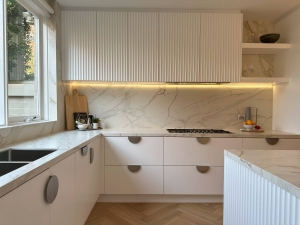The BMW i7 marks a significant milestone in the luxury electric vehicle (EV) segment in India. As BMW's flagship electric sedan, it combines cutting-edge technology, opulent comfort, and sustainable performance. For prospective buyers in India, understanding the i7's range, charging capabilities, and energy efficiency is crucial. This comprehensive guide delves into these aspects to provide clarity on what to expect.
1. BMW i7 Range in India
The BMW i7 offers impressive range figures, making it a viable option for both city commutes and long-distance drives.
-
ARAI-Claimed Range: According to the Automotive Research Association of India (ARAI), the BMW i7 delivers a range of up to 596 km on a full charge.
-
Real-World Range: In real-world conditions, the i7's range may vary based on driving style, terrain, and climate. However, it comfortably achieves approximately 350 km in urban settings and up to 470 km on highways.
-
Driving Efficiency: The i7's energy consumption ranges between 18.5 to 23.8 kWh per 100 km, depending on the variant and driving conditions.
2. Charging the BMW i7 in India
Charging infrastructure in India is rapidly expanding, and the BMW i7 is compatible with various charging options:
-
AC Charging (Home Charging):
-
7 kW Charger: Using a standard 7 kW home charger, the i7 can be fully charged in approximately 15 hours.
-
11 kW Charger: With an 11 kW charger, the charging time reduces to around 10.5 hours.
-
-
DC Fast Charging:
-
150 kW Charger: The i7 can charge from 20% to 80% in about 30 minutes using a 150 kW DC fast charger.
-
195 kW Charger: Utilizing a 195 kW charger, the charging time from 10% to 80% is approximately 34 minutes.
-
-
Charging Locations: BMW i7 owners can charge their vehicles at home, workplace charging stations, and public charging points equipped with Type 2 connectors for AC charging and CCS2 connectors for DC fast charging.
3. Energy Efficiency and Driving Modes
The BMW i7 is engineered for optimal energy efficiency without compromising on performance:
-
Energy Consumption: The i7's energy consumption varies between 18.5 to 23.8 kWh per 100 km, influenced by factors such as driving habits, terrain, and climate.
-
Driving Modes: The i7 offers multiple driving modes, including Comfort, Sport, and Adaptive, allowing drivers to balance performance and efficiency based on their preferences and driving conditions.
-
Regenerative Braking: The i7 features regenerative braking, which recovers energy during braking and feeds it back into the battery, enhancing overall efficiency.
4. Considerations for Indian Buyers
While the BMW i7 offers advanced features and performance, prospective buyers in India should consider the following:
-
Charging Infrastructure: While major cities like Delhi, Mumbai, and Bengaluru have a growing network of EV charging stations, availability in smaller towns and rural areas may be limited. It's advisable to plan routes and charging stops in advance.
-
Climate Impact: India's diverse climate can affect EV performance. In hotter regions, battery efficiency may decrease, leading to reduced range. It's essential to consider local climate conditions when evaluating the i7's performance.
-
Service and Maintenance: Ensure access to authorized BMW service centers equipped to handle EV maintenance and repairs. Regular servicing is crucial to maintain the vehicle's performance and longevity.
5. Conclusion
The BMW i7 stands as a testament to BMW's commitment to luxury, performance, and sustainability. With its impressive range, fast-charging capabilities, and energy-efficient design, it caters to the evolving needs of Indian consumers seeking a premium electric vehicle experience. By considering the factors outlined above, prospective buyers can make an informed decision and embrace the future of mobility with the BMW i7.





